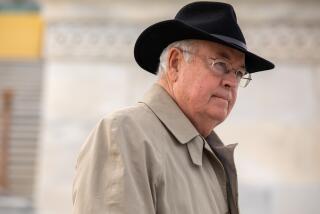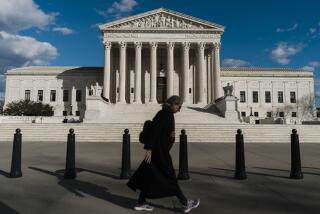Privacy Wins, Starr Loses
Acting swiftly on a case it heard less than three weeks ago, the Supreme Court has ruled that the privilege of confidentiality between lawyer and client continues beyond the death of the client. In so doing it rejected the claims of independent counsel Kenneth W. Starr that the demands of a criminal investigation should in some instances override the assurance of privacy. This ruling upholds a virtually absolute protection that has existed for more than a century and benefits every American who confides in an attorney.
Starr has been trying to subpoena a few pages of notes made by attorney James Hamilton during a meeting he had in 1993 with Vincent Foster, then a White House counsel. Nine days after this privileged conversation Foster killed himself. Starr wanted to know whether Foster might have revealed that White House aides lied when they denied that Hillary Rodham Clinton had a role in firing the White House travel office staff early in President Clinton’s first term. Starr conceded that if Foster were alive, the notes would be privileged but argued that his death ended that protection. The high court’s 6-3 ruling rejecting this claim was the first time it has held that the privilege extends beyond the grave.
There may be rare cases where an attorney on his own volition can waive confidentiality--say to prevent the conviction of an innocent person. But the barriers to keep that privilege from being weakened or snatched away by the state must remain strong. The expectation of confidentiality is as necessary when a client talks with a lawyer as it is when a patient talks with a physician or a penitent with a priest. Someone may have lied in the White House travel office case, but it would have been a terrible blow to American rights if that suspicion had been allowed to be the excuse for breaching an essential protection.
More to Read
Get the L.A. Times Politics newsletter
Deeply reported insights into legislation, politics and policy from Sacramento, Washington and beyond. In your inbox three times per week.
You may occasionally receive promotional content from the Los Angeles Times.










